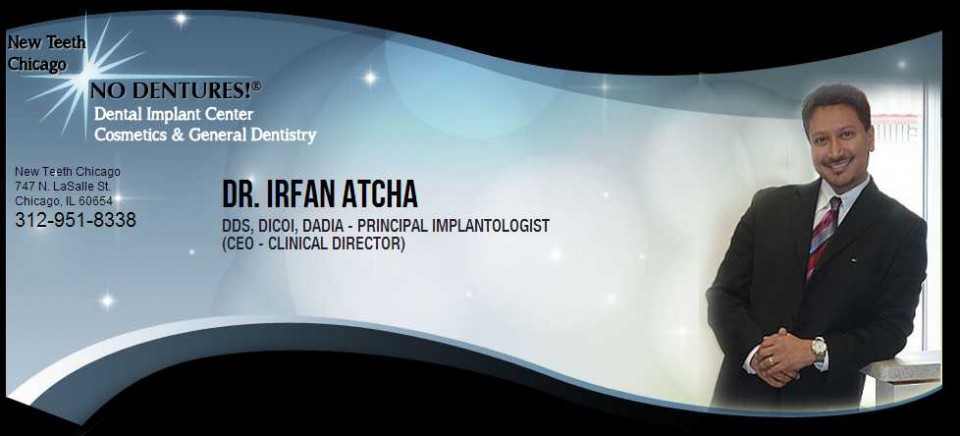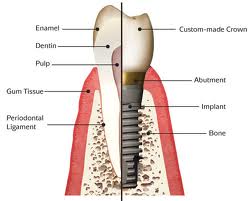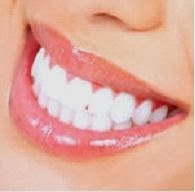Our bones last a lifetime, and our teeth seem just as durable. So, why do we lose teeth?
There are a number of reasons why teeth fall out, and some are not so obvious. We are aware that decay causes dental loss. However, very few people endure the pain of deep decay until a tooth is completely eradicated. Instead, the more subtle process of gum disease moves in and victims are unaware of its insidious destruction.
Here are some reasons why teeth fall out due to gum disease, also known as periodontal disease.
What is periodontal disease?
Gum disease is the leading cause of lost teeth. The disease begins very quietly. When plaque is not cleaned away from teeth, it hardens and becomes a bacteria magnet. The hard plaque and bacterial action cause gums to retract from teeth. The gum tissue acts as a sleeve to support the tooth. When gums recede, bacteria can move down into the roots of teeth and the jawbone. In time, the bone recedes from the tooth as well, causing the tooth to loosen and fall out.
Who are the victims of periodontal disease?
Men lose more teeth than women do, and persons over the age of 35 are most vulnerable to gum disease. Genetics can play a part. Age, genetics and sex are factors beyond our control.
Poor dental care contributes to periodontal disease.
Fully 60 percent of those with severe gum disease stated that they only occasionally brushed their teeth. Nearly 40 percent admitted that they had never visited a dentist to have teeth examined and professionally cleaned.
Smoking and chewing tobacco raise risks for periodontal disease.
Smoking or chewing tobacco affects the attachment of gums to the necks of teeth, and impairs blood flow to gums just as it does to the cardiovascular system. When this happens, the mouth becomes very susceptible to periodontal disease, especially the teeth in front where a cigarette touches, or the back molars where chewing tobacco is inserted.
Diabetes may cause periodontal disease.
Diabetic disease causes vulnerability to infections like periodontitis, especially if blood sugar levels are not properly controlled. All of these conditions but age, genetics and sex are preventable or controllable through proactive hygiene and professional care.
What if teeth have already been lost to periodontal disease?
Dentures have been the standard answer to missing teeth since George Washington’s day. The long history alone would suggest time for a change, and rightly so. Today dental implants provide people with a strong set of non-removable teeth that feel just like their original teeth. For those who have suffered loss of teeth and the embarrassment of a gaping smile or ill-fitting dentures, implants are a wonderful solution.
Is the implant process time-consuming?
Traditional implants are time consuming and sometimes require bone grafts, several surgeries and significant financial outlay. The “All-On-4” implant technique allows stable teeth to be surgically placed in one day. Usually, bone grafting is not necessary with this procedure, and it is much less expensive than traditional dental implants.
The time savings is very important to those who have no teeth and are concerned about appearance.
Is the “All-On-4” implant procedure painful?
This procedure is usually pain-free, due to sophisticated and precise techniques. The new teeth predictably remain stable for 20-30 years or longer. Most people will not need restoration of the implanted teeth.
Lost teeth create more problems than the original decay or gum disease. Bone degeneration can cause destabilization of the dental arch, leading to the shifting of remaining teeth. Oral bacterial infection can then set in, causing more teeth to decay or fall out. Bone loss may prevent proper fitting of conventional dentures, and general health may be adversely affected by inability to chew foods properly.
Dental implants stop further bone loss and provide the stability of natural teeth.

 If you have a missing tooth, you might be wondering if it can lead to other problems. A missing tooth creates some obvious problems, such as difficulty chewing. However, missing teeth can cause other problems that are not as obvious. Some of these issues can take years to show up.
If you have a missing tooth, you might be wondering if it can lead to other problems. A missing tooth creates some obvious problems, such as difficulty chewing. However, missing teeth can cause other problems that are not as obvious. Some of these issues can take years to show up. 1: Opening Packages with your Incisors
1: Opening Packages with your Incisors Did you know these eleven weird facts about your teeth?
Did you know these eleven weird facts about your teeth? There are many paths on the road towards the beautiful smile that you’ve always wanted. Some are simple procedures while some are a bit more involved, but each focuses on the unique dental needs of every individual.
There are many paths on the road towards the beautiful smile that you’ve always wanted. Some are simple procedures while some are a bit more involved, but each focuses on the unique dental needs of every individual. Dentures require considerable effort to keep clean, going well beyond a typical oral care routine. They must be scrubbed thoroughly each day to remove bacteria and left to soak in a special solution overnight. Furthermore, dentures are made from plastic and can easily become scratched. This allows bacteria to collect in the scratches, which can lead to foul odors, gum infections and stains. On top of it all, dentures must be handled with great care. If they are dropped onto a hard surface, they’re likely to break, requiring you to have a new set made.
Dentures require considerable effort to keep clean, going well beyond a typical oral care routine. They must be scrubbed thoroughly each day to remove bacteria and left to soak in a special solution overnight. Furthermore, dentures are made from plastic and can easily become scratched. This allows bacteria to collect in the scratches, which can lead to foul odors, gum infections and stains. On top of it all, dentures must be handled with great care. If they are dropped onto a hard surface, they’re likely to break, requiring you to have a new set made. 1. Mood Enhancer
1. Mood Enhancer